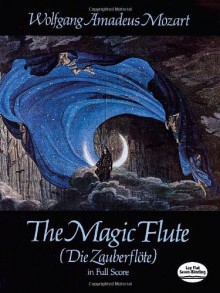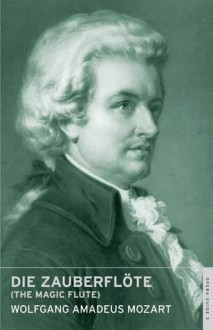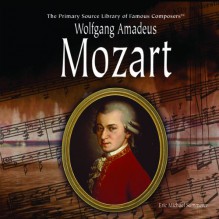
Earlier this evening, Not and I attended a free staging of
The Magic Flute given by Piccolo Opera, Geneva's opera school. Most of the performers were students at the school, ranging in age from about five to fifteen. They were reinforced by a few adults, who lent their voices at critical moments or sang parts too low for the children to reach. (One of our CERN friends was Sarastro, which was how we'd got to hear about it). The technical standard was dreadful, but it was a wonderful performance all the same. The kids, singing in German and doing the recitative in French, were often only marginally comprehensible, but I have watched the Bergman movie version a dozen times and was able to supply mental subtitles. Everyone was having fun, and there were some delightful moments. The kid playing Monostatos was about five years younger than Pamina and a head shorter, but he was did his best to come across as a psychotic would-be rapist; he got a big hand from the crowd.
And every now and then, the true magic of the opera shone forth. The Queen of the Night sang her duet with Pamina, where she gives her the dagger and tells her that she must kill Sarastro or never see her again. Usually chilling, this was very cute; the Queen's three attendants, all about eleven and doing their damnedest to look mysterious and sexy, danced around the mother and daughter as the Queen tried to reach the high notes in the coloratura bit. And then the girl playing Pamina relinquished the stage for a couple of minutes to one of the adult stand-ins, who sang her despairing aria with enormous passion and force, and briefly made us feel that she really was mad with grief and just wanted to kill herself.
It struck me that this was an interesting metaphor for life. Most of the time, we muddle along not really knowing our parts, giggling at the most solemn moments and forgetting the key lines. Occasionally, though, we're taken over by someone who actually does know what they're doing and interprets the role as it's meant to be played. And those are the moments we remember years later.
Piccolo Opera is brilliant; we'll be back in July, when they're doing
Mary Poppins and
La Belle Helène. And if you haven't ever seen
The Magic Flute, check it out.


 Log in with Facebook
Log in with Facebook 


 The arrival of the Queen of the Night. Stage set by Karl Friedrich Schinkel (1781–1841) for an 1815 production
The arrival of the Queen of the Night. Stage set by Karl Friedrich Schinkel (1781–1841) for an 1815 production






